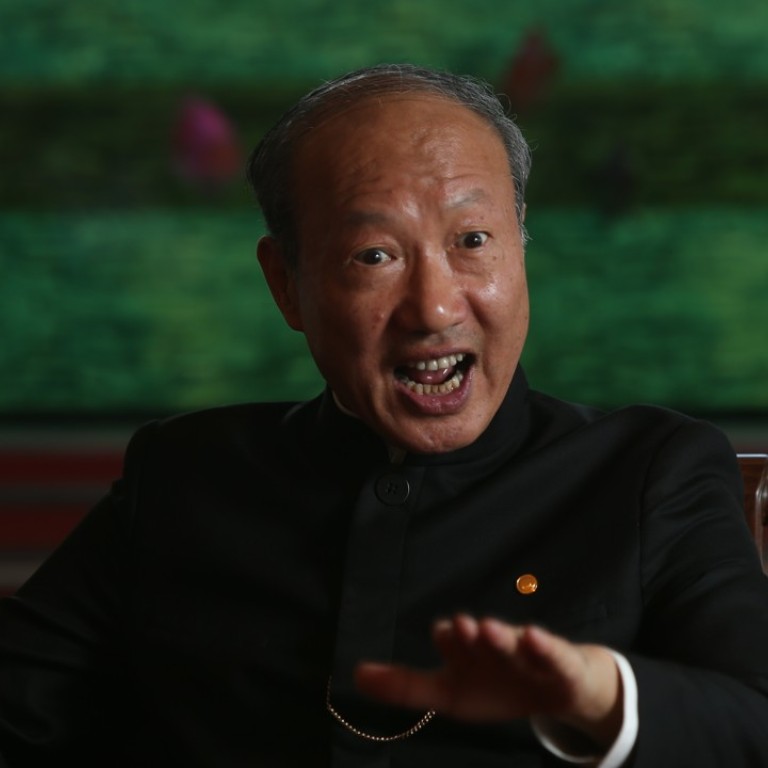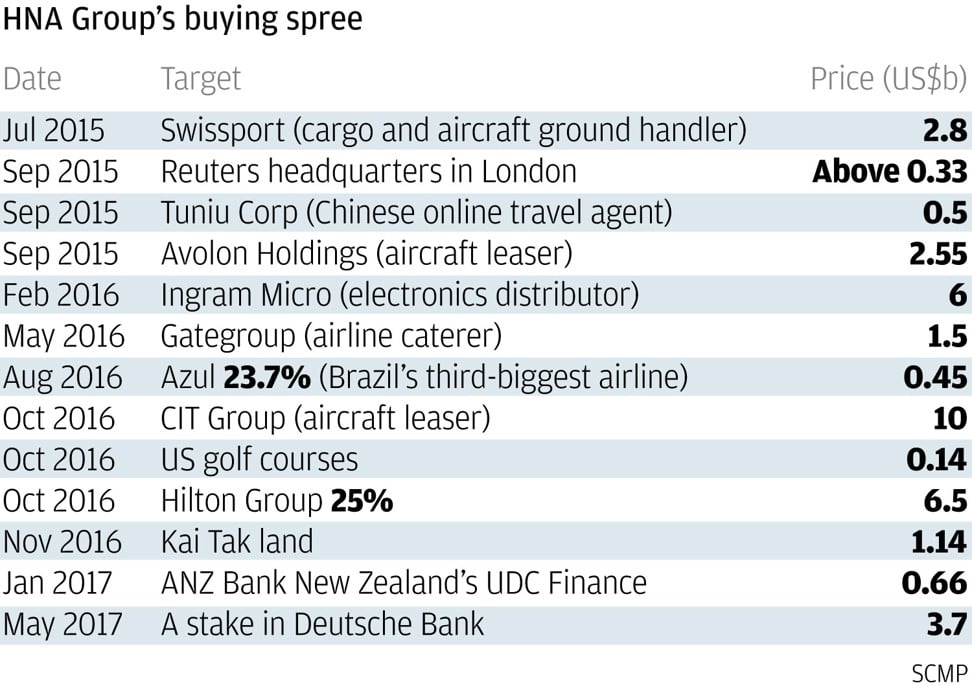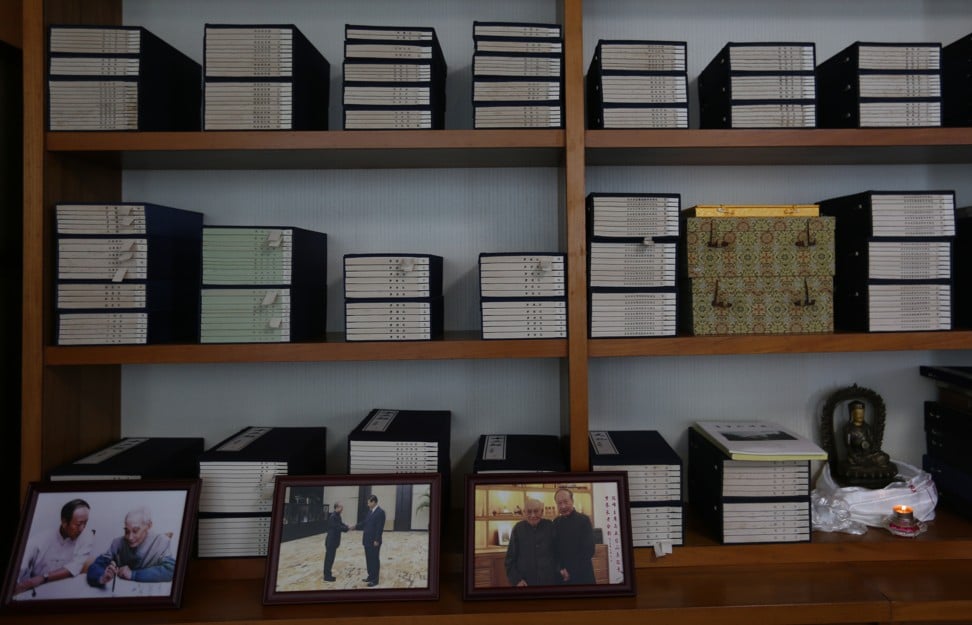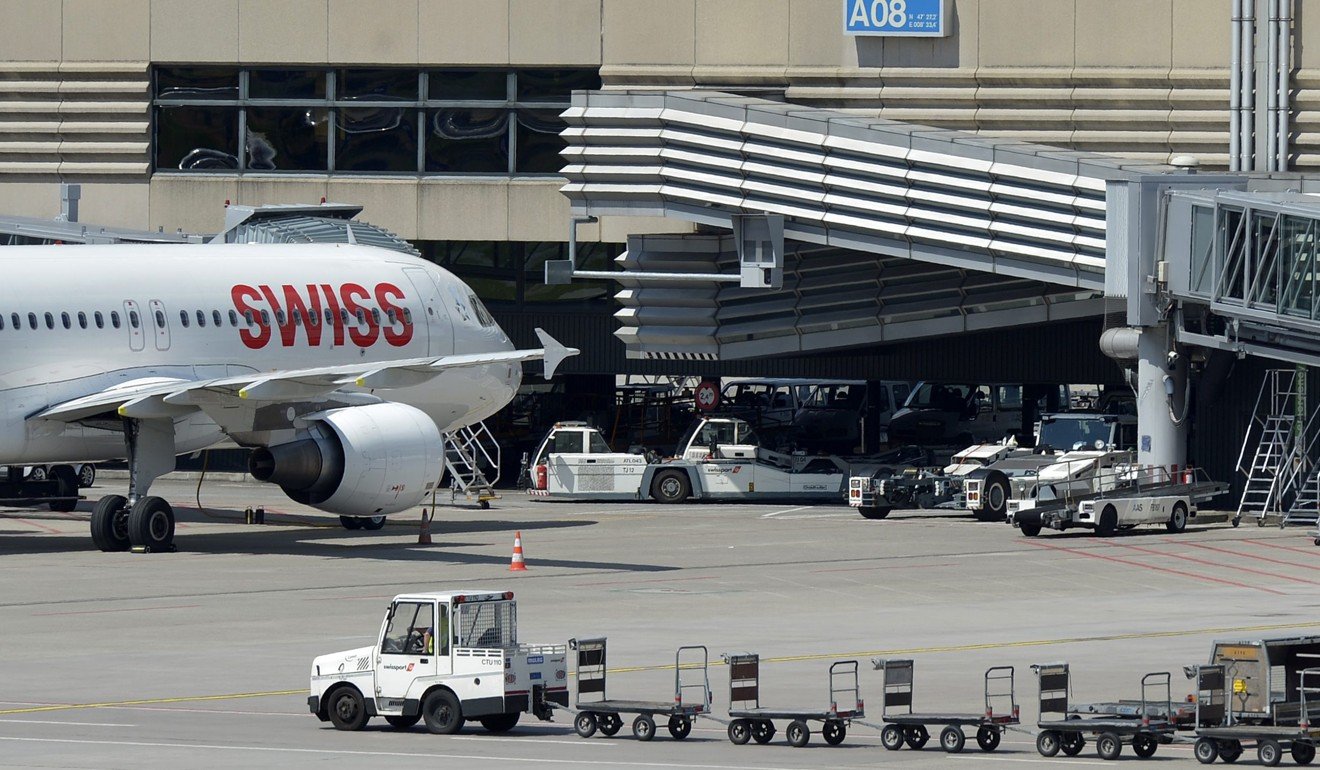
Exclusive | HNA’s founder calls fugitive Guo Wengui’s patronage claims ‘a pack of lies’
HNA, one of China’s most aggressive global asset acquirers, is suing fugitive Guo Wengui for defamation for the allegations
Chen Feng, the founder of one of China’s most aggressive global asset acquirers, said his HNA Group is a bystander in a smear campaign by people under the pressure of the Chinese government’s crackdown on corruption and financial malfeasance.
If you choose to listen to a pack of lies by an internationally wanted fugitive, then there is a problem
“If you choose to listen to a pack of lies by an internationally wanted fugitive,” whose credibility had already been damaged by the prosecution of his cohorts, “then there is a problem,” Chen said in an interview with the South China Morning Post in his first media response to Guo’s claims. “If you look at the business of HNA and understand its true nature, then you’ll see these claims are nothing but lies.”

In an April interview with the Voice of America’s mandarin service, Guo alleged that HNA owed its success to patronage by the Communist Party, with senior cadres and their relatives remaining as undisclosed shareholders. A claim was specifically directed at Wang Qishan, who heads the party’s anti-graft campaign, saying that his nephew Yao Qing was a shareholder.
“That’s 1,000 per cent untrue,” Chen said.
Watch: A photo slideshow of Chen Feng
Guan Jun, mentioned in a June 2 Financial Times article as among the company’s mysterious shareholders, “holds a tiny stake in the company” but is not a significant shareholder, Chen said.
Wang “was my superior when we worked together three decades ago” at China Agricultural Development Trust & Investment Corp, Chen said. “He attracted many young people to join him. I joined from the Civil Aviation Administration of China and worked under him, leading one of the teams. I learned a lot from him.”

From banking, Wang went on to help former premier Zhu Rongji liquidate Guangdong International Trust & Investment Corp, the biggest bankruptcy of a Chinese state borrower.
He would go on to lead Beijing’s fight against the 2003 outbreak of severe acute respiratory syndrome (Sars) as mayor, earning himself the reputation as a problem-solver. He was promoted to vice-premier until President Xi Jinping picked him to head the Communist Party’s Central Commission for Discipline Inspection and manage the party’s dragnet on corruption.

Wang believes that “friendship between gentlemen” should be at arms length, Chen said. “I still send him a card every now and then during festive occasions, but we rarely meet,” said the 65-year-old, who displays a prominent photograph of him shaking hands with Xi in a study adjoining his sprawling penthouse office. “We are just not on the same level – he’s a senior government leader while I’m just a businessman.”
During the company’s 20th anniversary in 2013, Chen and his five co-founders pledged to pass all their HNA stakes to the Cihang Foundation, established under the Hainan provincial government. Chen and HNA co-founder Wang Jian are directors of the foundation.
“The idea is that we bring nothing with us when we die and we pass nothing to our families,” Chen said. “While we’re alive, we can enjoy the benefits of being part of the company, but all that goes when we expire.”

